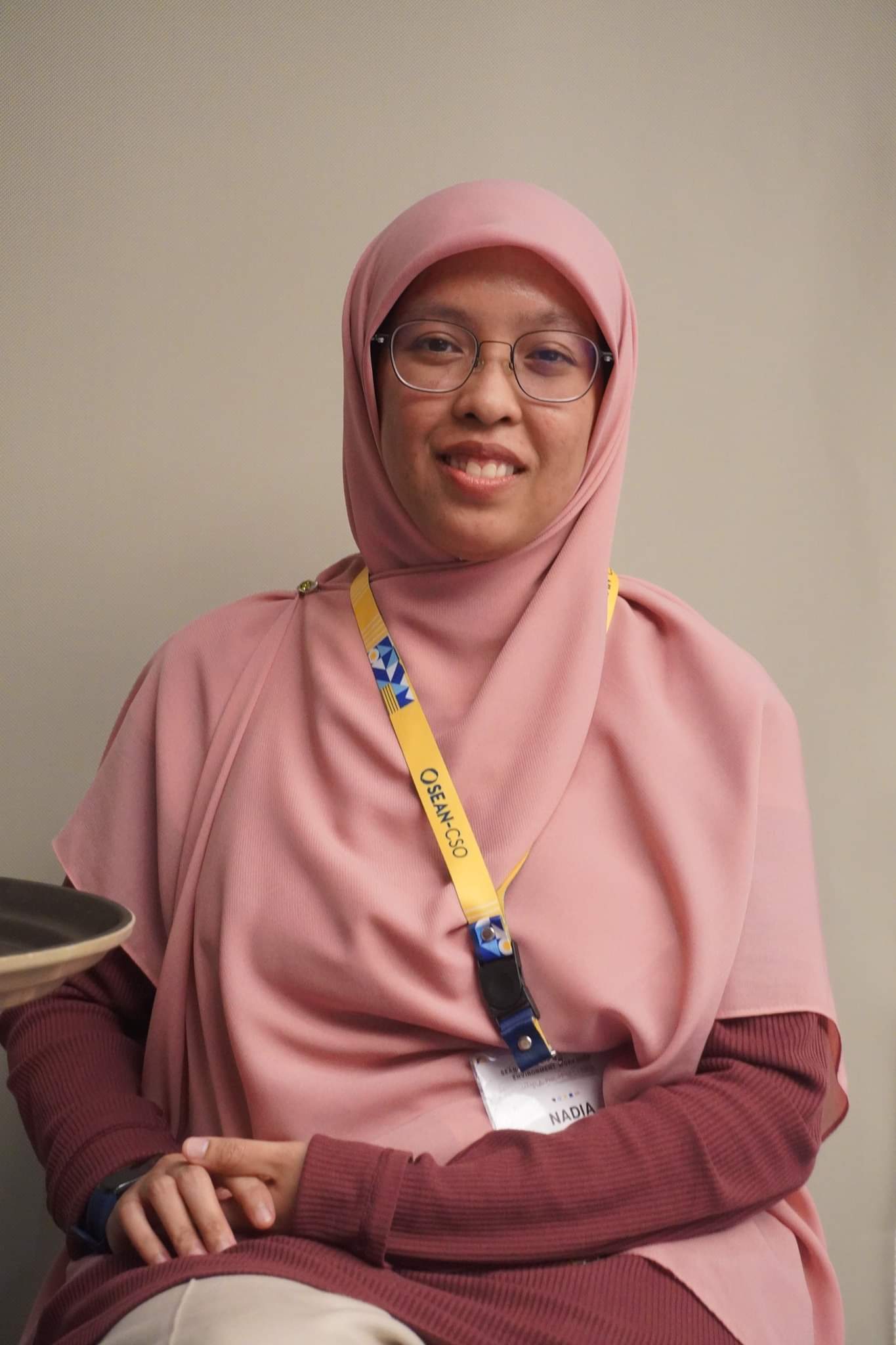
Nur Nadia Lukmanulhakim
Nur Nadia Lukmanulhakim, more commonly known as Nadia Lukman is a first-year doctoral candidate at the University of Nottingham Malaysia. She is conducting research on home and identity among second-generation Rohingya refugees in Malaysia. The more than a decade crisis that happened in Rakhine has forced the Rohingya refugees to be in a protracted displacement with their status continuing to be in limbo. Therefore, her research would like to study the idea of home and belonging among second-generation Rohingya refugees in Malaysia using qualitative approaches. Nadia is also actively involved in the issues of labor migration in her home countries via non-governmental organizations.
Current affiliation
- Nottingham University Malaysia
Hosting institute
Contact
- Email: …
Profile according to FFVT taxonomy
Fields of research
- Migration Research
Scientific topics
- Identity
- Integration And Social Participation
- National Refugee And Asylum Policies
Disciplines
- Anthropology
- Cultural Studies / Literary Studies / Linguistics
- Sociology
Professional Career
Master of Arts (Malaysia Studies) from Sultan Idris Education University
Bachelor of Social Science (Anthropology and Sociology) (Hons) from Universiti Sains Malaysia
Relevant publications
- Lukmanulhakim, N.N.. Kaedah Pembentukan Identiti Nasional dalam Universiti Awam di Malaysia. 2020. Jurnal Peradaban Melayu.
- Lukmanulhakim, N.N., Suhaili, S.. Managing Diverse Students in Malaysia Higher Education Institution. In Higher Education: Developing Holistic Graduates. 2023. IIUM Press.
- Nadia Lukman, Al-Adib Samuri, Farah Hanip. ON THE EDGE: Vulnerabilities of Rohingya Refugees in Malaysia. 2023. IMAN Research.
- Nadia Lukman. Remembering Pattani: Patani Conflict and Negotiating Identity. 2022. IMAN Research.
- Nadia Lukman. Economic Migrants and Malaysian Cheap Labour Dependency. 2022. IMAN Research.
Research profile
Q1. Who are you?
My name is Nadia Lukman from Malaysia. I am a Ph.D. researcher focusing on the topic of refugees, migration, and identity in Malaysia.
Q2. What was your motivation for applying for the FFVT fellowship? Why Germany?
My motivation for this fellowship came about as I realized the immense need for an asylum policy in Malaysia. Refugee and migrant-focused NGOs have been pushing the Malaysian government to have a specific policy on asylum for years to no avail. As such, I believe Germany's experience on refugee and asylum matters would be beneficial, as an example to imagine and plan ahead for the sort of asylum policy that we want to achieve in Malaysia in the future.
Q3. What do you expect from the fellowship?
Two expectations that I have for this fellowship will be to be connected to researchers in Germany working on the issue of refugees and also to learn about the experience of Germany and Europe at large on the management of refugees.
Q4. What is the focus of your work, and what is innovative about it? / What are your planned outcomes and activities for the fellowship period? And how do they relate to your FFVT hosting institution/ the FFVT cooperation project?
My focus of work will be on Rohingya refugees, particularly from the second generation that was born or lived in Malaysia throughout their childhood. There has been a lack of research that focuses on second-generation refugees in Malaysia which brings us to the question of identity and the way these groups respond to the current policy (or the lack thereof) on refugee and asylum. Unpacking these topics will bring new data on the issue of refugee integration in Malaysia.